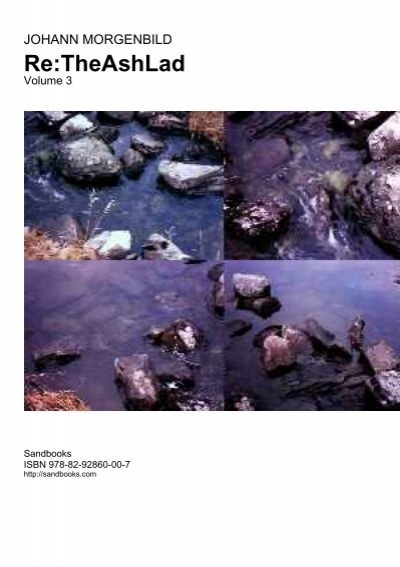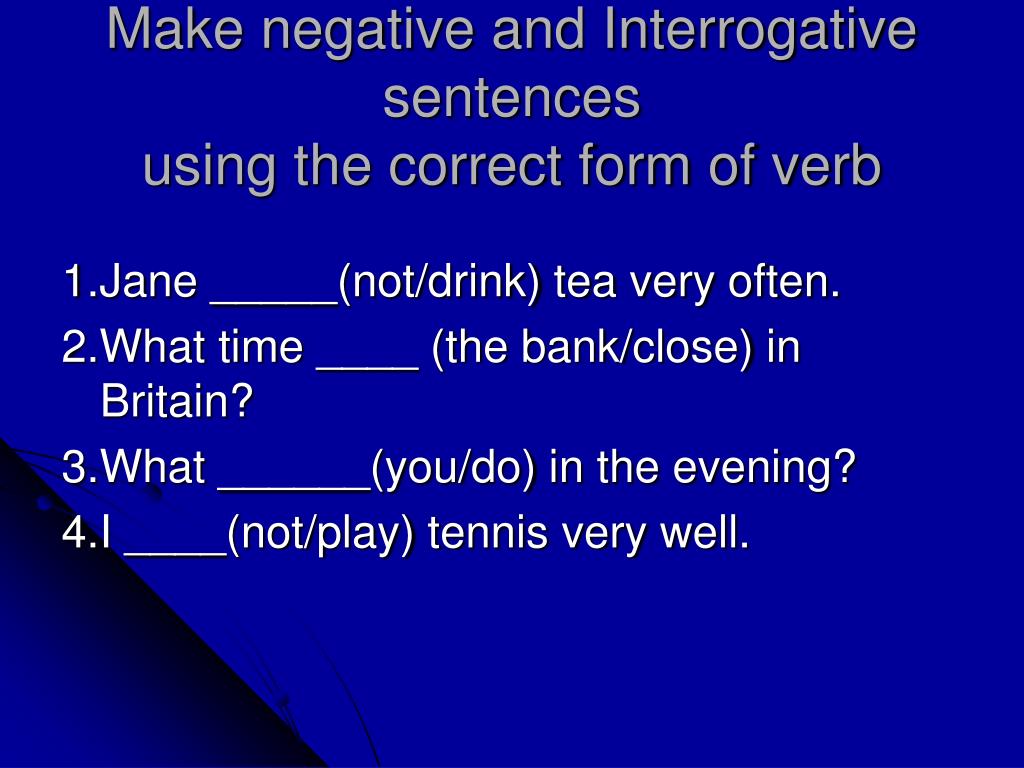Present Simple NEGATIVE AND INTERROGATIVE. 2 (a) do not drink milk. IYouThey NEGATIVE: I We You They + do not + main verb She He It + does not + main. - ppt télécharger
$ 15.00 · 4.7 (662) · In stock

3 She does not drinks milk. 3 rd person singular no -s on main verb THE SIMPLE PRESENT: NEGATIVE (a) I do not drink milk. (b) She does not drink milk. do and does = helping verbs ?
Present Simple NEGATIVE AND INTERROGATIVE. 2 (a) do not drink milk. IYouThey NEGATIVE: I We You They + do not + main verb She He It + does not + main.
IYouThey NEGATIVE: I We You They + do not + main verb She He It + does not + main verb We (b) does not drink milk. He ItShe THE SIMPLE PRESENT: NEGATIVE.
3 rd person singular no -s on main verb THE SIMPLE PRESENT: NEGATIVE (a) I do not drink milk. (b) She does not drink milk. do and does = helping verbs .
(c) I don’t drink milk. They don’t go to the lake. do not = don’t CONTRACTIONS: does not = doesn’t THE SIMPLE PRESENT: NEGATIVE.
smile not We ________ snakes.don’t like like not.
don’t They ____ ____ help..
( c) Do we like salad. ( d) Do they like salad. ( a) Do I like salad. QUESTION FORMS, SIMPLE PRESENT DO/ + SUBJECT + MAIN DOES VERB THE SIMPLE PRESENT: YES/NO QUESTIONS.
( g) Does it look good. ( e) Does she like salad. Does she + main verb (simple form) QUESTION FORMS, SIMPLE PRESENT DO/ + SUBJECT + MAIN DOES VERB THE SIMPLE PRESENT: YES/NO QUESTIONS.
main verb = a form of be THE SIMPLE PRESENT: YES/NO QUESTIONS.
Yes, I do. No, I don’t. (j) Does Max like ice cream. Yes, he does. No, he doesn’t. THE SIMPLE PRESENT: YES/NO QUESTIONS.
Yes, I do. Let’s Practice Question Short Answer Long Answer.
Yes, he does. Let’s Practice Question Short Answer Long Answer.
16 Cows don’t bark. Do cows bark No, they don’t. Let’s Practice Question Short Answer Long Answer
THE SIMPLE PRESENT: ASKING INFORMATION QUESTIONS WITH WHERE * Where do they live .
(b) Where do they live. In Baltimore. THE SIMPLE PRESENT: ASKING INFORMATION QUESTIONS WITH WHERE.
(d) Where does he live. In Cape Town THE SIMPLE PRESENT: ASKING INFORMATION QUESTIONS WITH WHERE.
Let’s Practice (He brushes his teeth in the bathroom.).
Let’s Practice (Lucy likes to read at the library.).
THE SIMPLE PRESENT: ASKING INFORMATION QUESTIONS WITH WHEN AND WHAT TIME.
At eight o’clock. THE SIMPLE PRESENT: ASKING INFORMATION QUESTIONS WITH WHEN AND WHAT TIME Q-WORD + DO/ + SUBJECT + MAIN DOES VERB.
26 does the pool close The pool closes at 6:00 P.M. When (What time) Let’s Practice
27 do you eat lunch I eat lunch at 12:00. When (What time) Let’s Practice
______________ ______________ _____________ .
(c) When is lunch. (b) Where are your gloves. Q-WORD + BE + SUBJECT LONG ANSWER They are at home. My name is Uma. Lunch is at noon. The movie is at 5:00. SUMMARY: INFORMATION QUESTIONS WITH BE AND DO.
Q-WORD + DO + SUBJECT + MAIN VERB (f) Where does she live. She lives in Belgium. (i) When do you study. It starts at 9:00 A.M. She plays tennis. I study at night. SUMMARY: INFORMATION QUESTIONS WITH BE AND DO.
31 Where ____ they buy food do Let’s Practice is are does do What time _____ the train leave does
32 When ____ your test is Let’s Practice is are does do What ____ their names are
33 Images used under license from: Shutterstock, Inc. Clipart.com PHOTO CREDITS

PRESENT SIMPLE

Present Simple NEGATIVE AND INTERROGATIVE. 2 (a) do not drink milk. IYouThey NEGATIVE: I We You They + do not + main verb She He It + does not + main. - ppt télécharger

Chapter 03 1

Chapter 03 1
Easy English - What is the Simple Present Tense? If you want to talk about an action which is happening in the present moment, you will be using the present simple tense.

Re:TheAshLad - Sandbooks
Positive, Negative,: Present Simple, PDF, Languages
Present Simple Tense - Learn English Easy & simple mathods

Present simple in affirmative, negative and interrogative forms.

Learn english, Simple present tense, Grammar

Sat 01 Mar 2014 by The Guardian Newspaper - Issuu

PPT - THE PRESENT SIMPLE PowerPoint Presentation, free download - ID:3039235

Present simple in affirmative, negative and interrogative forms.


